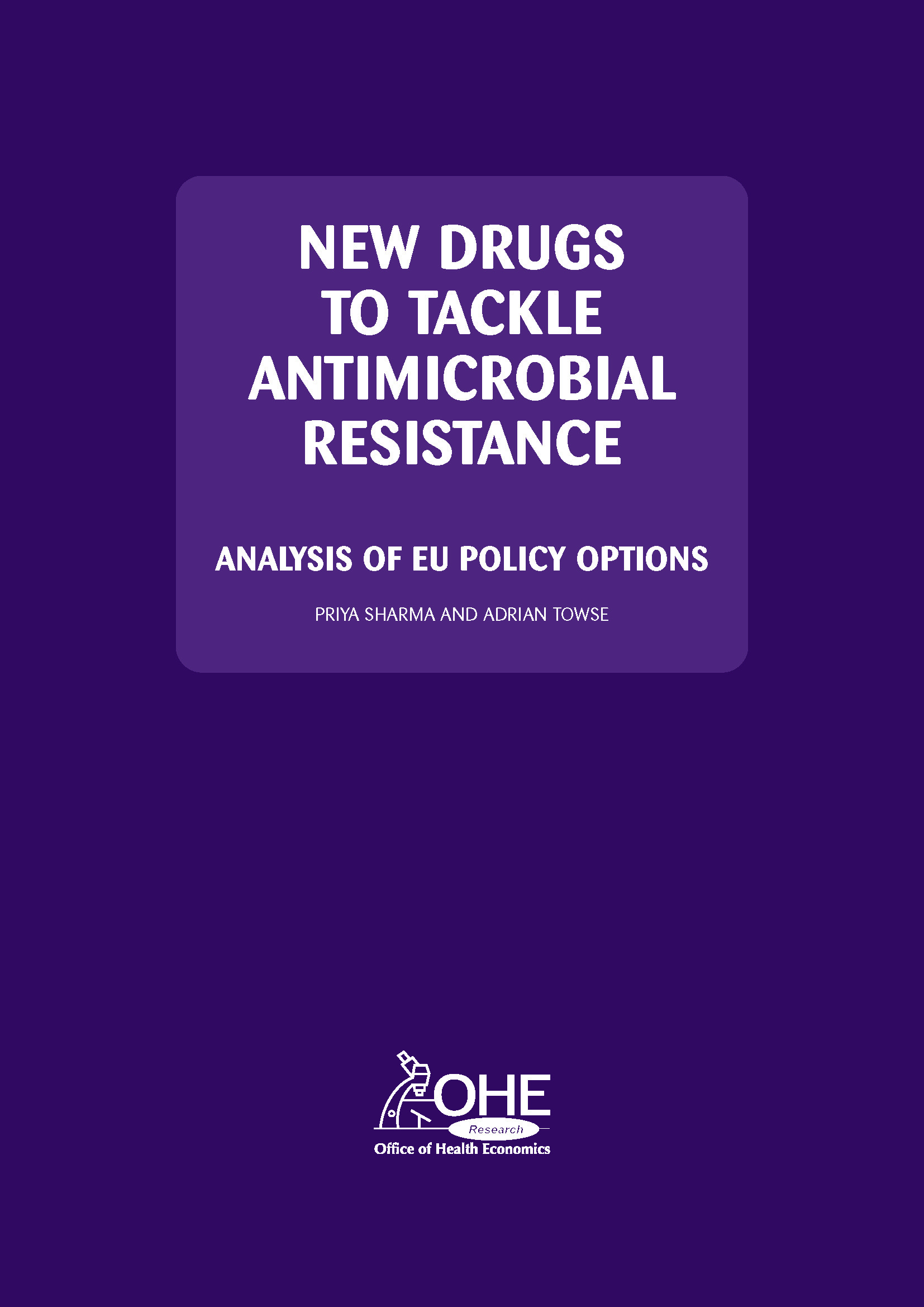A new report today by the Office of Health Economics (OHE) called for a shake up in the way future antibiotics are to be rewarded in…
A new report today by the Office of Health Economics (OHE) called for a shake up in the way future antibiotics are to be rewarded in Europe so that biopharmaceutical companies can spend more to fight superbugs.

A new report today by the Office of Health Economics (OHE) called for a shake up in the way future antibiotics are to be rewarded in Europe so that biopharmaceutical companies can spend more to fight superbugs. The report also calls for more research to better quantify the value of the expected health benefits of investing in antibiotic research and development, and for more dialogue, not only between the EU and the US but, given the global nature of the problem, other institutions as well.
Bacteria have developed resistance to almost every single antibiotic developed in the past 50 years or so – and the rate of resistance to new antibiotics is increasing rapidly, and new superbugs are emerging all the time. Even the strain of E-coli responsible for the current outbreak has been found to be resistant to over 12 antibiotics in eight different classes. The danger of resistant bacteria is that without effective treatment, diseases with traditionally high cure rates, such as pneumonia, become more difficult to treat. And “routine” procedures, such as organ transplants and hip replacement surgery, which rely on antibiotics, may no longer become possible or carry a greater risk of failure.
Compounding the problem is the lack of new antibiotics in the pharmaceutical pipeline. Very few new classes of antibiotics have been discovered in the past decades. The two main reasons for this are the low returns on R&D investment in this area and a restricted use of newer antibiotics to manage resistance.
The OHE makes the following two alternative recommendations at European level on how future antibiotics should be rewarded:
- First, a hybrid approach whereby EU regulatory authorities need to provide an accelerated review for new antibiotics and Member States should ensure that prices reflect the growing cost of antibiotic resistance. This should be accompanied by restrictions on the use of new antibiotics to delay the build-up of resistance; or
- Second, companies receive an upfront payment for registration, rather than for volume of use. If correctly designed, this second recommendation is better able to balance the tension between public health goals of policy makers – to slow the growth and spread of resistance and encourage the development of new antibiotics – and the need for pharmaceutical companies to earn a return on their R&D investments.
Adrian Towse, Director of OHE, said “The European Commission has been tasked to come up with a comprehensive action plan with proposals for incentives to develop new antibiotics by the end of this year. It is essential that this happens and that new incentives are introduced to make sure that we get new antibiotics and that their use is managed to prevent superbugs building up resistance”.
Conclusions from the Council of the European Union (December 2009): Three presidencies of the EU have placed a major focus on antibiotic resistance. The Swedish Presidency hosted a conference in September 2009 titled, “Innovative Incentives for Effective Antibacterials”. The outcome of the conference was that the Council of the European Union formally adopted the conclusions of the conference in December 2009. Among the conclusions was a call to the European Commission to come up with a comprehensive action plan with proposals for incentives to develop new antibiotics. They were given until the end of 2011 to develop that action plan.
The Office of Health Economics (OHE) provides independent research, advisory and consultancy services on policy implications and economic issues within the pharmaceutical, health care and biotechnology industries. Its main areas of focus are: the pharmaceutical and biotechnology industry, health care systems-their financing and organisation-and the economics of health technology assessment. Further information on the OHE can be found at OHE’s webpage: www.ohe.org
The OHE has a long-standing involvement in the area of antibiotic resistance and more generally, in the debate about how to encourage R&D in areas where normal market mechanisms have proved inadequate. This report was funded by a grant from GlaxoSmithKline. It is available for download from the OHE website.
Professor Adrian Towse, Director
+44 207 747 1407
Priya Sharma, Health Economist
+44 207 747 8860